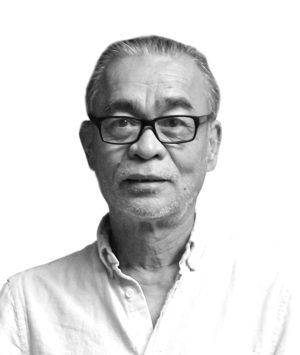
RAYMUND FERNANDEZ
I was more or less your age in 1972 when Marcos declared martial law. Government was placed under the control of the military. The military was, of course, beholden to Marcos who was commander-in-chief. Thus, all mechanisms to check and balance the power of the president were rendered inoperative. Congress was immediately padlocked, Marcos’ most vocal critics detained in military stockades. The Supreme Court as still there but it was hardly capable of questioning Marcos’ actions. The press was muzzled. There was no way for people to hold government accountable, no means for people to know what was really going on unless by word of mouth. And so, young people wrote their thoughts in manifestos and position papers, had these printed by mimeograph and distributed these between themselves.
This was the social network before those words “social network” were even born. We stood in traffic lanes distributing mimeographed sheets of paper, which for quite a long time represented the last vestiges of free expression in our country. This was the poetry of revolution. It was the simple act which defined us as the young generation of Filipinos. This was how we fought our revolution. We knew our role in it. We grew up in a time and place where all actions of government were determined by one strong man and his cronies. We came of age in a place where truth and freedom had died. Our task was to test how far we could be free; mostly secretly free, and for quite a few number of times, openly free to the extent that we could. We attended rallies, stood at picket lines. But mostly, we stood in certain street corners distributing leaflets, manifestos, and position papers. How else could people read words from their imprisoned leaders? How else would they know what was going on and what they ought to do about it?
At the time that we were doing all these, we thought we would not ever see the time when we would actually win our country back. It seemed such an easy thing to stay up late at night writing words then printing them using such a simple thing as a mimeograph machine, which by the way was the same machine used to print our tests. It was no big deal to receive sheets of paper and then passing them to our classmates after we read them. Not a big thing to hold secret meetings. And yet, that may really be how all revolutions are fought and won: little actions, little risks, little sacrifices, done by enough number of people, done even when victory seems nowhere in sight.
By 1986, just a few years after we graduated, we would see the fall of Marcos’ martial law. In a peaceful People’s Power revolution we would see the return to our country of the democratic processes, elections, a relatively credible rule of law, and a free press. It was not as easy as it now seems. Many people had by then been detained and tortured, died in prison, or lost their lives in the hills, unrecorded, unremembered. But for most of us, little incremental steps were all we could do. It was all that was required.
We should have done more; Or we would not see now a slow creeping return to martial law. But perhaps we did all we could. From hereon, it will have to be up to people younger than us. It is your world now.